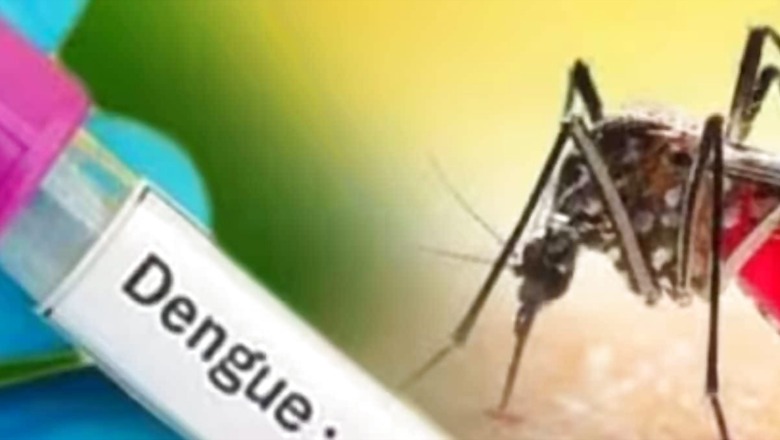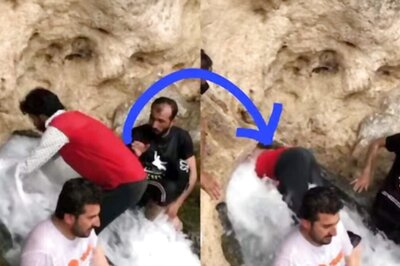
views
Dengue-like cases among Bengaluru children are on the rise with doctors raising an alarm to handle high-grade fever symptoms with extreme caution across cities and towns. These cases are mimicking classic symptoms of dengue, including a significant drop in platelet count, but test reports are turning out to be negative for the mosquito-borne viral disease.
Some doctors believe that it could possibly be due to evolution of the dengue virus, and they are advising parents to seek immediate medical support in case of high fever. They said children run the risk of running low on platelets, which leads to a drop in blood pressure.
Medical experts treating children in Bengaluru hospitals have advised people to refrain from self-medication and over-the-counter remedies in case of fever. For instance: consumption of medicines such as pain relief pill Ibuprofen increases the risk of bleeding complications in dengue fever.
‘Alarming rise’
Dr Narayanaswamy S, medical director at Bengaluru-based Athreya Hospital, has witnessed an alarming rise in dengue-like fever among children, especially those under the age of 10.
“These fevers mirror classic dengue symptoms, including a significant drop in platelet count, accompanied by high fever but don’t yield a positive result when any dengue test is done,” said the doctor. “Also, we have observed that these cases have surpassed the actual dengue cases at Athreya Hospitals.”
He warned that the shift underscores the need for heightened vigilance and awareness, as “these dengue-like fevers can also pose serious health risks for paediatric patients”.
Similarly, Dr Supraja Chandrasekar, director of paediatric services at DHEE Hospitals in Bengaluru, told News18: “This year, the hospital has witnessed a concerning spike in dengue cases among children marked by high-grade fever. Also, it has been observed that several dengue test results yield false negatives when done during the first three days.”
“Symptoms such as intense headaches, eye pain, and heightened body aches are unusually more prevalent this season,” the doctor said.
Dr Supraja advised parents in other cities and towns that when a child presents with a high fever, “it’s wise to consider dengue from the outset… even if test results yield negative”.
Although there is a WHO recommendation to avoid NSAIDs like mefenamic acid and ibugesic, it is challenging to control it with paracetamol alone, she added.
Another medical expert, Dr Jagadish Hiremath, who is chairman at Bengaluru-based AASRA Hospitals, echoed this experience. “Recent observations have shown a concerning spike in dengue-like fever cases among children. Parents, upon observing symptoms such as high fever, severe headache, vomiting and itching, must take their child to the nearest hospital for immediate medical intervention,” the doctor said.
News18 checked with multiple hospitals in Delhi-NCR, including Fortis, Holy Family and Max Healthcare. But, no such cases have been reported so far.
Dengue strain evolving?
Dr Narayanaswamy quoted the latest findings of a study by researchers at Rajiv Gandhi Centre for Biotechnology. They have found that dengue becomes more severe or virulent when exposed to higher temperatures. “The warmer conditions expedite the virus growth within mosquitoes, potentially leading to faster transmission to humans,” the doctor said, quoting the study.
The researchers found that dengue becomes more severe and hostile in animal models when its virus, DENV, while being grown in mosquito-derived cells is exposed to higher temperatures. “The recent study highlights the impact of global warming on dengue severity adds another layer of complexity to this ongoing health challenge,” he said.
He added: “While we continue our efforts to address dengue outbreaks, it’s crucial that we adapt our strategies to the evolving nature of the disease.”
How are such patients being managed?
According to doctors, hydration is the cornerstone of managing dengue. “Parents must ensure their children receive fluids like ORS, porridge and tender coconut water, once every one to two hours,” Dr Chandrasekar said.
Doctors have been following treatment protocol for dengue fever despite non-conforming results. “On the third day if symptoms persist, a dengue test, preferably the ELISA, should be conducted between the third and fifth day for more definitive results,” they said.
“It’s important to understand that the dengue reaction often starts once the fever subsides. Parents should be vigilant for warning signs and recommend them to be watchful,” they added.




















Comments
0 comment